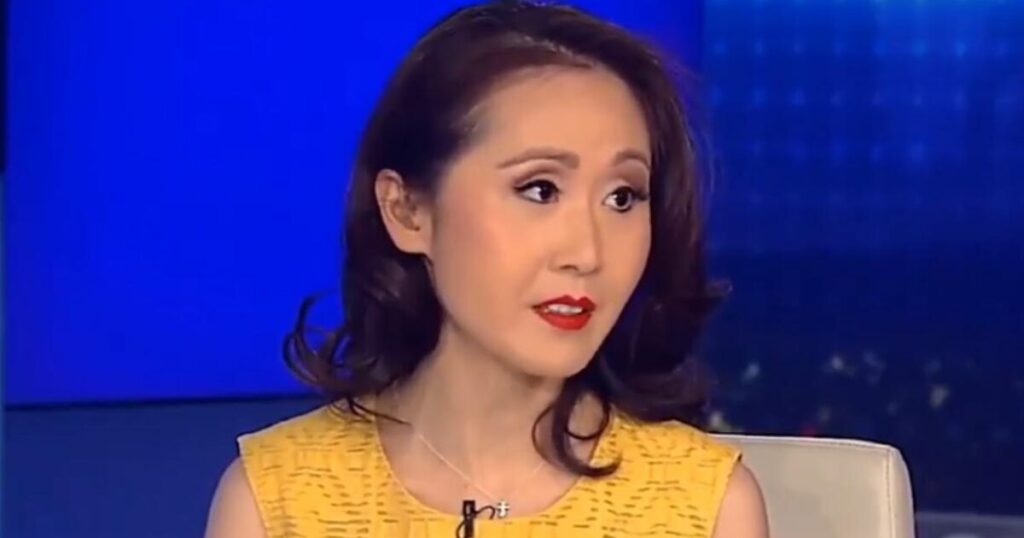The recent revelations about President Joe Biden’s mental decline, as reported by The Wall Street Journal, have sparked intense discussions regarding the transparency of his administration and the complicity of the media. Over the years, numerous observations indicated that Biden’s cognitive capabilities were waning, a sentiment that was largely met with skepticism or outright denial within mainstream media narratives. However, the acknowledgment of his decline by a prominent publication has catalyzed a substantial discourse about the implications of such a cover-up. Critics argue that this has not only misled the public but has also fostered an environment of distrust in political and media institutions. Despite the longstanding awareness articulated by various outlets and individuals, including The Gateway Pundit, this new exposure claims that influential figures have deliberately concealed such pressing concerns about his fitness to serve.
Lindy Li, co-chair of the Democratic National Committee (DNC), has emerged as a vocal figure against the backdrop of Biden’s cognitive issues. During a recent fundraiser, she observed the dismay among donors who were taken aback by Biden’s deteriorating capabilities. This private acknowledgment from prominent party figures underscores a growing unease within the Democratic establishment regarding Biden’s ability to effectively lead. Li’s candid statement—that Biden has not been cognitively fit for several years—reflects a stark assessment of the situation, echoing the sentiments many had privately held for an extended period. The alarm raised by donors who reacted with phrases like “we’re f*cked” indicates a palpable anxiety regarding the President’s viability as a candidate for the upcoming 2024 elections.
The implications of Biden’s cognitive decline extend beyond individual concerns; they pose broader risks to the Democratic Party’s electoral prospects and unity. The acknowledgment from within the party about Biden’s condition raises questions about the future leadership hierarchy, especially as rumors circulate regarding Vice President Kamala Harris’s increasing influence. Following the fundraising event where Biden’s mental weariness became an open topic of concern, the political landscape shifted dramatically, leading to speculation about Biden’s potential withdrawal from the 2024 race. This environment of uncertainty has exacerbated tensions within the party as factions emerge, vying for resources, delegates, and financial backing.
Additionally, the role of the White House physician, Dr. O’Connor, has come under scrutiny following these revelations. Critics argue that his previous assessments regarding Biden’s cognitive health were misleading, contributing to the cover-up narrative. This distrust in medical evaluations performed under politically motivated circumstances raises ethical questions about the responsibilities of health professionals in safeguarding public interests against the backdrop of political maneuvering. As political campaigns intensify, the expectation for honest assessments becomes crucial, highlighting the need for greater accountability among those tasked with evaluating the president’s fitness for duty.
The fallout from these developments is palpable not only in terms of political ramifications but also in how party loyalty is perceived. Lindy Li’s recent resignation from the Democratic Party, branding it a “cult,” further exemplifies a growing rift and disillusionment among party members. Her departure points to a deeper crisis of confidence as individuals grapple with their allegiance to a party that may not align with their concerns or visions for the future. Li’s decision is emblematic of a larger trend where political affiliations are called into question amidst dissatisfaction with leadership and direction.
Ultimately, the unfolding narrative surrounding Joe Biden’s mental fitness and the subsequent reactions from party insiders has illuminated a broader discussion about transparency, accountability, and the state of American politics. This expose challenges not just the viability of Biden’s leadership but also the values and integrity of those who choose to support or conceal uncomfortable truths for the sake of political expediency. As the 2024 elections approach, the ramifications of these revelations will likely resonate throughout the campaign season, potentially reshaping not only voter perspectives but also the Democratic Party’s strategies moving forward. The ongoing discourse emphasizes an urgent need for vulnerability and honesty in political dialogue, as the implications of such cover-ups can carry far-reaching consequences for democracy and governance.

